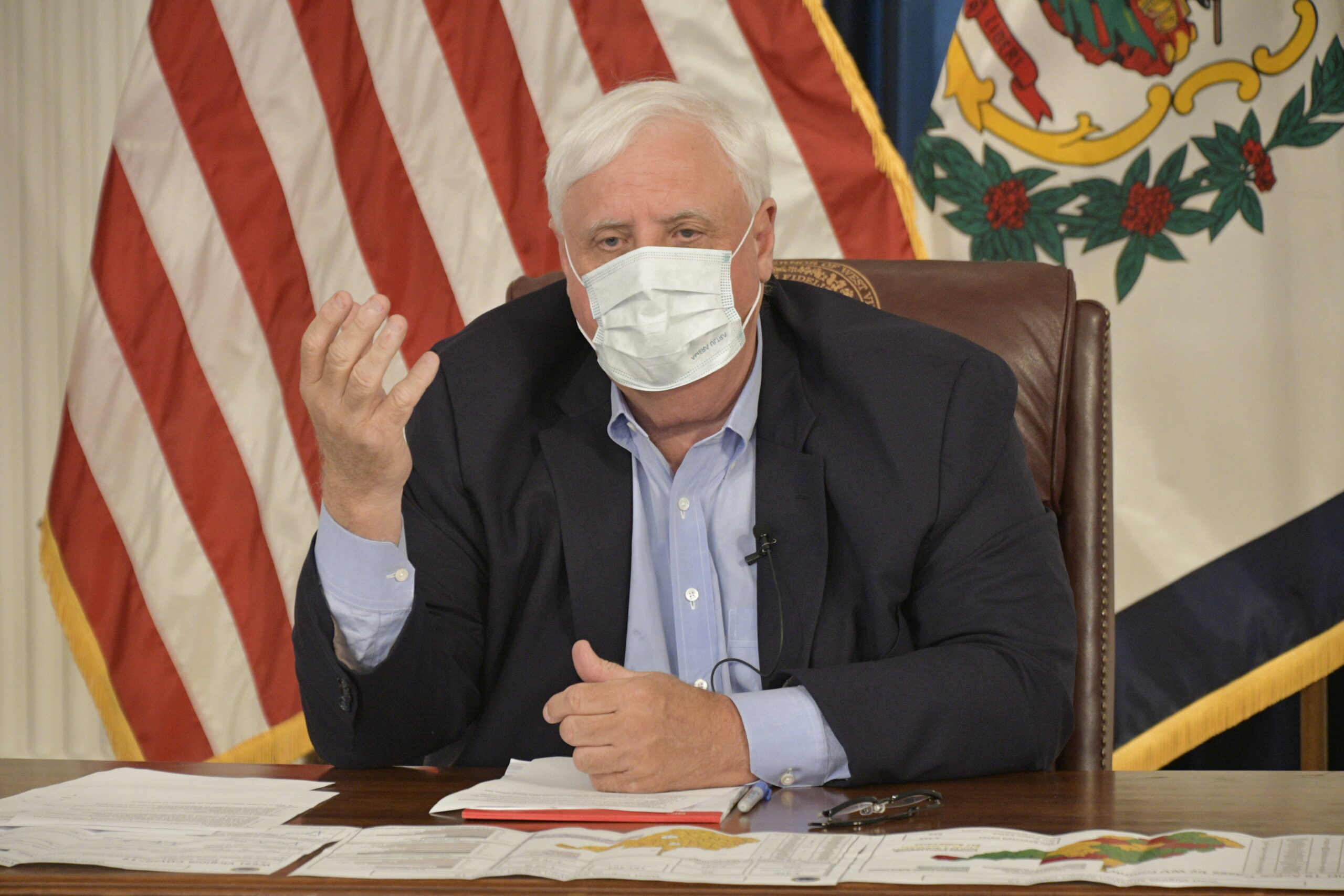MORGANTOWN — When Gov. Jim Justice announced his statewide mask mandate on July 6, he made it clear he had no plans to enforce it.
That left many scratching their heads and asking how a toothless order could work.
The press pressed him on it that day and at subsequent press briefings, but he always stuck by his non-guns. The wording varied, but he didn’t want to create needless division and rebellion; he wanted people to cooperate out of their own sense of love and community spirit, to “be the miracle.”
Justice said – and was supported by COVID-19 Czar Clay Marsh – that he has no power to enforce the order; that falls to the Legislature.
So the Dominion Post asked Justice and legislative leaders about the legal underpinning for that belief, and asked the legislative leaders about calling a special session to enact penalties.
Justice didn’t respond.
House Speaker Roger Hanshaw said in an email exchange, “We certainly agree with the governor that the Legislature would need to pass a law making it a crime and detailing penalties for violating a mandatory mask requirement during a pandemic in order to allow law enforcement to cite, arrest or fine people who do not obey such a mandate.
“However, we also agree with the governor that we do not believe we need to go that route.” Hanshaw said. “We are seeing widespread compliance with the mandate in our communities, and most businesses – including our largest retailers – are now exercising their right to require customers to wear masks or face coverings to enter their buildings.
“Cities and local health departments are also exercising their authority to enforce this through their local powers,” he said. “As long as we continue to see voluntary compliance among the public, we don’t feel the need to enforce this through a statewide criminal law.”
Senate Judiciary chair Charles Trump, R-Morgan, unfolded in a phone interview the state code that spells out the governor’s powers led and some of the ensuing confusion.
“In some degree, we’re in uncharted territory,” he said. But the power to issue a ask mandate via executive order lies in state code 15-5-6, the Emergency Powers Act.
The most pertinent portions are subsections (c)(7), (8) and (11), which allow the governor to “suspend the provisions of any regulatory statute prescribing the procedures for conduct of state business or the orders, rules of any state agency”; “to use available resources of the state and of its political subdivisions that are reasonably necessary to cope with the emergency”; and “to perform and exercise other functions, powers and duties that are necessary to promote and secure the safety and protection of the civilian population.”
The act has been on the books since the 1950s and amended at various points since, Trump said. “It seems reasonable to me that a mask mandate lies within that authority.”
Regarding enforcement, though, “things get a little bit murkier. … I don’t see anything in the Emergency Powers Act that prescribes a specific penalty for failure to comply with one of these emergency executive orders.”
The act does spell out some specific penalties, he said, such as for disseminating false or misleading information via robocalls during an emergency.
“Only the Legislature can make laws that carry criminal sanctions,” he said.
A later paragraph, Trump said, adds another bit of murk: 15-5-18 says “A peace officer, when in uniform or displaying a badge or other insignia of authority, may arrest without a warrant any person violating or attempting to violate in such officer’s presence any order, rule or regulation made pursuant to this article.”
So an officer can make an arrest, but there’s no penalty prescribed. “What do you do after you arrest them?”
Hanshaw referenced local governments using their local powers to enforce the mask mandate. The Dominion Post’s Ben Conley reported on a two-part plan developed by Morgantown and Monongalia County community leaders to curb the local outbreak and enforce the order.
The first part is a three-step approach to isolate businesses experiencing positive tests in employees or patrons. The second part would be an executive order from Justice – which he has not yet issued – requiring Monongalia County businesses to require and enforce the wearing of masks by employees and patrons. Any patron who refuses would be subject to arrest under trespassing laws.
Trump explained that state code doesn’t allow local authorities to determine their own penalties. But
but health departments, health officers and political subdivisions have enforcement powers for state regulations.
State code 16-3-2, for example, Trump said, allows local health boards to establish quarantines “to prevent the spread of any communicable or infectious disease prevalent therein, or to prevent the introduction of any communicable or infectious disease prevailing in any other state, county or place.”
This section was originally enacted in 1881, Trump said. Failure to comply is a misdemeanor carrying a fine of $25 to $200
A bit of code from 1923 and amended in 1977, 16-4-21, authorizes a health officer to quarantine anyone with venereal disease, Trump said.
The confusion and uncertainty that has ensued from the governor’s order is understandable, Trump said. “Its the nature of having a hodge-podge of code sections that have been enacted over the course of a century and a half.”
Tweet David Beard @dbeardtdp Email dbeard@dominionpost.com




